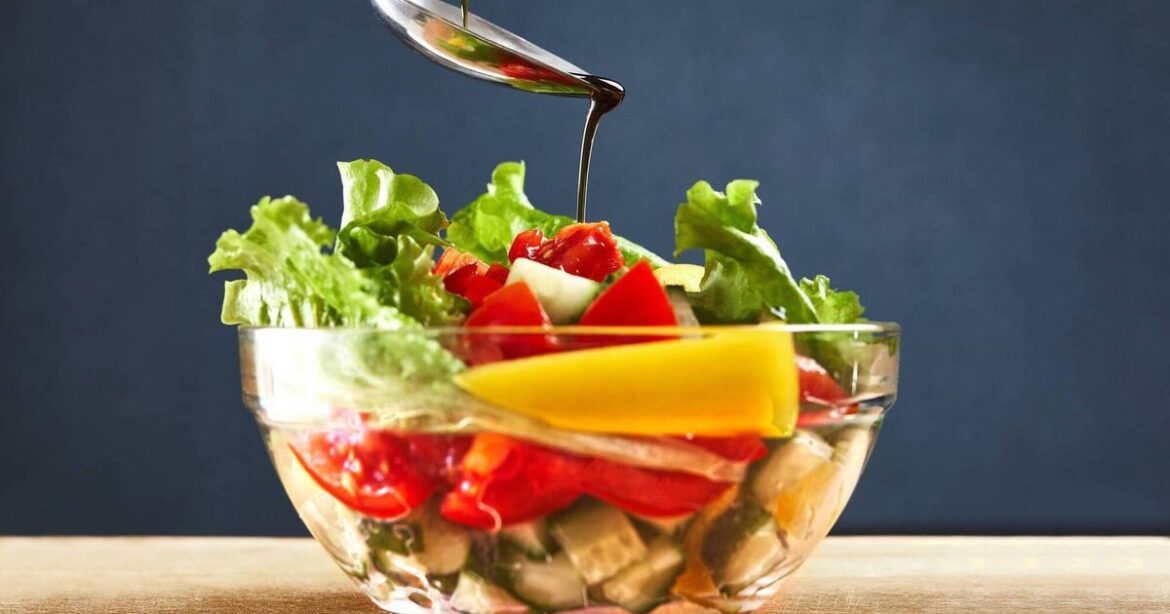When Brad Pitt and Angelina Jolie launched their own olive oil in the Spring of 2017, it created almost as many headlines as their subsequent divorce.
Olive oil is a powerhouse of antioxidant compounds in the body and found in food that helps to defend cells from free radicals, which can cause oxidative stress and increase the chance of developing a range of chronic diseases.
Eating a diet rich in antioxidants increases the body’s ability to reduce oxidative stress and the risk of diseases that affect the cardiovascular and central nervous system.
Antioxidants promote the anti-inflammatory effect that is thought to be a leading driver of many chronic diseases, including type 2 diabetes, heart disease, cancer, Alzheimer’s, obesity, and arthritis.
It has been clear for decades that heart disease is less common in Mediterranean countries. Extensive research on the Mediterranean diet has shown that it is linked to lower risk factors for heart disease. Extra virgin olive oil, along with less meat and dairy and more fruit and vegetables, are the key components of this diet.
In terms of olive oil alone, recent research by researchers at Harvard University outlined how just half a tablespoon (7g) a day of olive oil is enough for benefits to both the heart and the brain.
The study tracked almost 100,000 people over two decades and found that just half a tablespoon was linked to a reduction in the risk of cardiovascular disease, compared to those who rarely or never consume it.
A study published in Nutrients (2020) outlined how olive oil has been shown to lower blood pressure, one of the strongest risk factors for heart disease and premature death.
High calorie intake, as we know, is associated with weight gain, and fats are high in calories. But there are numerous research studies, including a Spanish review of the evidence in 2018 that found that diets high in olive oil helped promote weight loss compared to diets low in olive oil. The bottom line is that excessive consumption of any food can lead to weight gain, including olive oil.
Alzheimer’s disease is one of the most common neurodegenerative disorders – that is, a disease that causes loss of neurons in the brain.
It is characterised by a build-up of beta-amyloid plaques in the brain that are linked to memory loss and a decline in cognition.
A recent review of the evidence, published in the International Journal of Molecular Science (2024) that included evidence from lab, animal, and clinical studies, concluded that olive oil may reduce the risk of developing Alzheimer’s disease and cognitive impairment.
People in Mediterranean countries have a reduced risk of cancer. A paper in Nutrients (2020) suggested that some of that reduced risk may be explained by the Mediterranean diet, which includes olive oil.
A comprehensive review of the evidence published in Plos One (2022) suggested that risk of cancer was reduced by almost a third (31%) for people who consumed the highest amount of olive oil. Again, this anti-cancer effect may be driven by the high antioxidant content of olive oil, but this is not clear and more research is needed.
Extra virgin olive oil retains more of the antioxidant and bioactive compounds than refined olive oil, where much of the nutrients may be lost in processing. Extra virgin is therefore likely to confer more health benefits, although it is almost always more expensive.
Selecting olive oil as a dressing is one of the best ways to add it to your diet. It has a low smoking point, and exposing it to heat by frying or roasting triggers changes in its chemical structure, as well as its flavour and nutritional content.
Virgin and extra virgin olive oils reach smoke point between 160C and 190C while standard olive oil is thought to be able to tolerate 200 to 240C.
The bottom line is that quality extra virgin olive oil is incredibly healthy and extensive research has found it to be a powerhouse of antioxidants, conferring substantial benefits on heart, brain, joints and even longevity.
Maximum benefits are obtained when drizzled over salad or used as a dip for bread. Including small amounts – up to a tablespoon in a diet rich in fruit and vegetables; wholegrains, and limited meat and dairy is an enticing alternative to the typical Western diet overloaded with meat, dairy, and processed foods.
As well as being delicious, it just might maximise heart, brain, and joint health as you progress through your middle and elder years.

